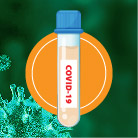≡

Too young for this: Facing Colorectal Cancer at a much younger age

Dr Clara Wu
| Director, Emergency Medicine Centre, and Consultant in Emergency Medicine |
Emergency Cases
A closer look at eczema
Eczema is a reactive skin disorder of no infectiousness. Human parts commonly affected by the disease are the face, vicinity of the lips, wrist, elbow and inner part of the knee. Eczema causes red, itchy, droughty and thickened skin, as well as vesicles.
The disease is not contagious. It results from neither bacterial nor viral infection but active irritation caused by innate immunity. Factors of eczema include inheritance and irritating substances, such as dust, wool, pollen, animal hair, furfur and proteins from eggs, seafood, dairy products, beef, peanuts, etc.
Patients of eczema should seek medical consultation in the first place and receive ointment and medicine treatments under doctor’s instructions to control their condition. They should also bear in mind that long bath is not recommended, the temperature of bathwater should be moderate and they should not rub their skin with a towel or body sponge, as this is irritating. Besides, they should avoid using soap, detergents containing fragrances and liquid sterilising agents. Meanwhile, only moisturising creams and alternatives advised by doctors could be used. In addition, people suffering from eczema have to keep themselves away from irritants. To do so, they should keep their homes clean without the accumulation of dust and avoid using carpets, velvet sofas and fluffy toys. It is suggested that they should not keep haired animals and plants which produce pollens. Patients are recommended that they should often maintain a moisturised skin with emollients as well.








